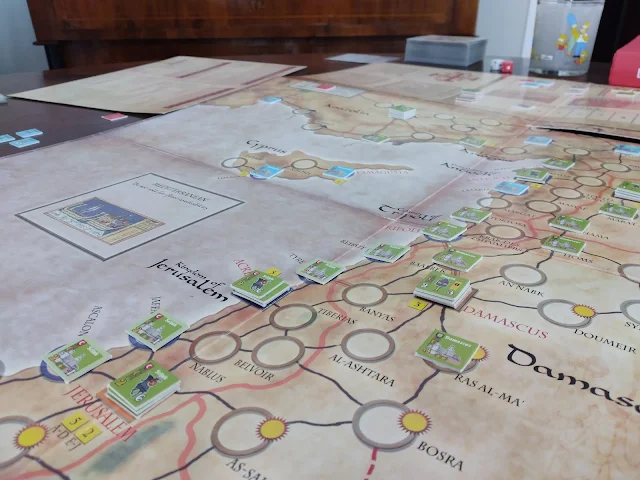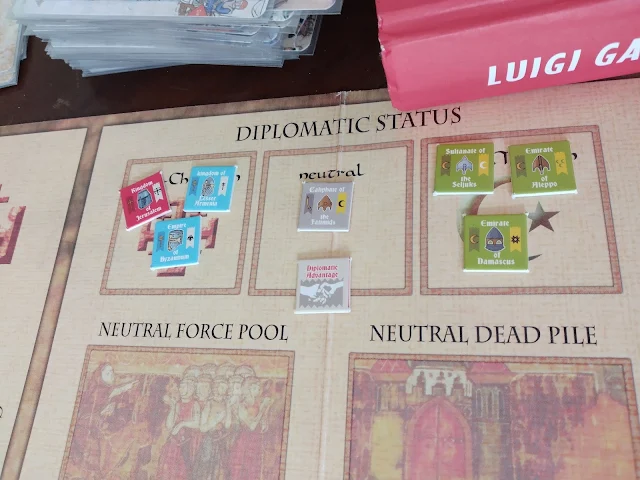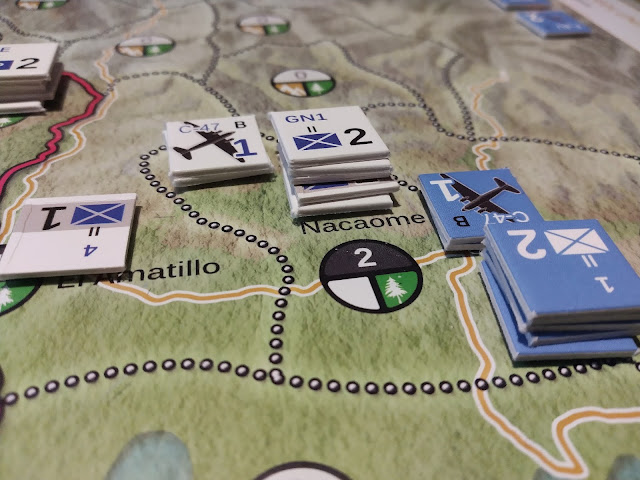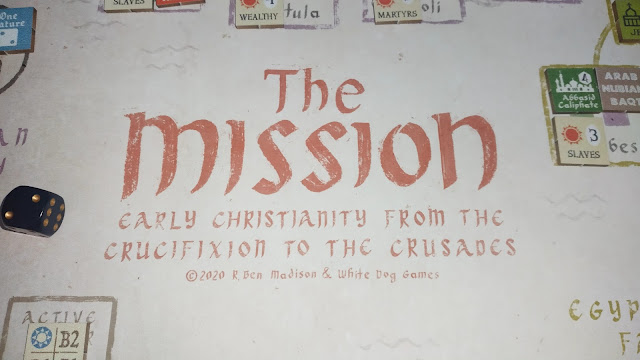Kingdom of Heaven. Syphilitics and Shia: The First Crusade
Scenario A, "Deus lo Vult! The First Crusade".
Christian: Laura Beltrami
Muslim: Alex Isabelle
We are at the end of the eleventh century, and Asia Minor has been occupied, in the course of about twenty years, by the Seljuk Turks, who have eroded the borders of the Byzantine Empire to the point of forcing the latter to seek an alliance with the kingdoms of Western Christianity, which unlike it are going through a period of prosperity. Pope Urban II, who was already looking for ideas to orient this new power towards the lands of the heathens, therefore does not miss this opportunity to answer that call, and formulates a solution on a grand scale. The First Crusade is then announced; those who participate will receive a total atonement for their sins.
The game is not about the very first contingent of crusaders who arrived in the holy land, that "Crusade of the beggars" led by the visionary Pietro the Hermit, a body of twenty thousand subjects without weapons or discipline, dedicated to anti-Jewish violence, who were able to get slaughtered even by the Orthodox, both Hungarians and Byzantines, due to their great diplomatic ability, and who, once they reached the surroundings of Niš, were only able to carry out some looting before being further and definitively exterminated. Instead, it deals with what is the first canonical crusade, that is the large military body that arrived from Constantinople in 1097, formed by nobles, men-at-arms, pilgrims from France, Flanders, from the Norman possessions in Italy, and basically from all the rest of Europe. The leaders who appear here are Raymond of Toulouse, Godfrey of Bouillon, Baldwin of Flanders, Bohemond of Taranto and his nephew Tancredi d'Altavilla. They are also accompanied by General Tatikios, of the Byzantine Empire, leading a small contingent of Orthodox forces.
The group, this time very well armed, succeeds after some tribulations to overcome the mountains of Asia Minor, engaging an exploratory contingent led by the governor of Antioch himself, Yaghisiyan, near of Herakleia, today's Ereğli. The game actually indicates this character as an unspecified "Emir", but I did a little research on Wikipedia and I seemed to understand that this could be our guy. Yaghisiyan's army is immediately eliminated after inflicting a few, costly, casualties on the Crusader group. They are costly because, even if their numbers are enormous, in the course of this enterprise the crusaders will most probably not receive any supply, and therefore they have to make use of the forces they have; each loss is therefore expensive, because it reduces the effectiveness of the army in the long run. By the way, incredibly, Yaghisiyan manages to save himself from the massacre by fleeing into the hills. The Crusaders therefore proceed on their path, relying on the fortified cities of Sis and Marash, in Lower Armenia, whose Orthodox governors obviously support the cause of the Christian reconquest. The important port of Tarsus, south of Lower Armenia, which could represent a strategic point, is ignored; the crusaders point directly towards Antioch, actually known as Anatakya among the pagans, defended by a good number of soldiers led by Duqaq I, the King of Damascus.
 |
| Syphilis affects the camp of the besiegers. |
Despite the large number of men, fresh and ready to take the city, things, in Antioch, do not turn as expected. The defenders, supported by a large number of soldiers and an access to the sea that makes it difficult to completely block the city, approaches the imminent siege with a very high morale, also supported by the fact that in the meantime the Atabeg of Mosul, Kerbogha, has been informed of the situation, and is busy preparing an army of mujaheddin to prear the invaders.
Antioch will indeed fall within a few months, but the Divine will send clear and unequivocal signals to the Crusaders. In fact, during the siege an "epidemic" spreads among the attackers.
We put quotes on this epidemic, because we think that a disease that behaves as such should affect a group of people, in this case an army, with a certain uniformity. In this specific case, the "epidemic" did not substantially sow damage among the ranks of the Crusaders. On the other hand, it has directly affected the leaders of the latter: Boemondo and Tancredi leave this world, while the absolute leader, Raimondo of Toulouse, almost dies and gets kicked out of the game for a whole year. The fact that this "epidemic" ignores the populace and affects only the officers is something at least suspicious. Our opinion is that among the ranks of Christians there was some harlot suffering from some disease, let's say syphilis, and that this bacteriological weapon of other times was passed between all of the important Crusader leaders. Result: officers dead of syphilis, army saved. This makes sense in our minds. The chroniclers of the time must have been informed that, in order to safeguard the wounded pride of the rulers of half of Europe involved in this conflict, it would have been better to write in their reports than an "epidemic" had hit the army of the crusaders, and so they did.
 |
| Raymond of Toulouse, called "the Syphilitic". |
Whatever happened, the leadership of the Crusaders, left without half of their lords, passes to the fearless but decidedly less capable Godfrey, sustained by the other few survivors, Baldwin and Tatikios. Thanks to the intervention of an unspecified Italian engineer they succeed to overcome the defenses of Antioch, finally taking control of it. Muslim troops are largely put to the sword; Duqaq is captured.
In the meantime, there is no shortage of trouble on the other side of the fence as well: the Sultanate of the Seljuks and the Emirates of Aleppo and Damascus are in fact part of the Islamic league; the Fatimid Caliphate, though, which controls Egypt, is not involved in the war, partly because it is not directly involved in the border diatribes - in the end, the issue that started it all is a border war between the Seljuks and the Byzantine Empire - and partly because it is divided from the other Islamic kingdoms by some diatribes of a religious nature: the Fatimids, in fact, are Shiites, and are themselves interested in profiting from this general offensive against the Sunnis. In 1098, therefore, several revolts begin to rage, carried out by Shiite groups, in Aleppo and Damascus; Ridwan of Aleppo, the King of Aleppo, then withdraws from the open conflict, taking care of repressing dissensions within his territory; the same happens to the remaining Damascene troops, who will never leave their territories thereafter.
 |
| The siege of Antioch is now nearing conclusion. Notice the intervention of the Italian engineer. |
Meanwhile, the group of crusaders gets divided into three. Some believe that, having taken Antioch, the question is to be considered closed: packaged the fruits of their plunder, they take to the sea and go home. Godfrey, Baldwin and Tatikios notice that the current situation cannot seriously be considered a success, and therefore they take half of the soldiers now stationed in Antioch under their wing, and set off southwards, going to besiege Tarabulus. The remaining troops of Antioch, theoretically under the control of the syphilitic Raymond, still intent on being treated by the Greek doctors who accompanied him from Constantinople, instead give themselves to barbarism, further sacking the redeemed Antioch. Disputes arise over the division of the booty, which feed nationalistic rancor evidently not completely put aside. In the ensuing chaos, several of these soldiers kill each other.
In the midst of this delirium, the army of Kerbogha finally arrives, directly from Mosul, together with the legitimate governor of Antioch, Yaghisiyan, and a huge contingent of troops on horseback. Antioch is then besieged again, this time by the Muslims. The siege is expected to be long: the plan is to conclude it in 1099, or rather not to conclude it at all. The real purpose of the Muslims is in fact to block in Antioch the contingent, greatly reduced but still capable of wounding, of the anarchist crusaders responsible for the sacking of the city, and in doing so to definitively divide the Christian troops.
Godfrey, Baldwin and Tatikios, however, manage to conclude in no time at all the siege of Tarabulus, actually almost unguarded, immediately renaming it Tripoli, to then quickly go up north and attack the Atabeg Kerbogha's troops. The clash is intense and sees the participation of the troops that have remained closed so far inside the city. Together, the Christians manage to drive out the Seljuk troops, who then retreat in the direction of Ar-Ruha'.
 |
| The gaunt forces of Goffredo, Baldovino and Tatikios. |
Antioch is therefore saved, but the Christians begin to draw some conclusion about their current situation. In fact, at the dawn of 1099, the troops begin to be tired of a war that is slow in bearing fruits. In some circles, at the beginning of the war, some people was talking about the possibility to go south and liberate Jerusalem itself, but this goal now appears extremely ambitious. They decide to think in terms of "small, achievable goals that could make us consider this war a success".
Thanks to ships offered by the Genoese, evidently interested in favoring a Christian control of the seas of this region, a group of soldiers led by the revived Raymond the Syphilitic, finally returned in conditions that allow him to lead the crusade, takes care of sailing towards Tarsus, the Seljuk port in Armenian territory that had been snubbed at the beginning of the war. Godfrey, Baldwin and Tatikios, on the other hand, try to replicate the success of Tripoli by marching towards the east, in the direction of Ar-Ruha', the city they already plan to rename Edessa. With Antioch, Edessa, Tarsus and Tripoli the crusaders should be able to effectively take control of the region: the promise to return these territories to the Byzantine Empire, given the amount of Christian blood shed, has already been forgotten. The operation is clearly risky and does not take much into account the variable represented by the Seljuk forces, still strong despite the internal problems caused by the Shiites.
 |
| The map before the Seljuk counter-attack. |
With a relatively fast campaign it is therefore possible to take control of Tarsus, which however does not yield without a fight, while Edessa is successfully besieged and effectively blocked. However, Kerbogha himself defends the city, with a large contingent of knights arriving directly from Mosul. He shows from the beginning that he has no intention of letting the city fall. Yaghisiyan, on the other hand, rides to Tripoli, which immediately surrenders, surrendering to the peace offer launched by the former governor of Antioch. He proceeds immediately north, occupying in no time an Antioch left essentially deserted by the Crusaders, who perhaps did not think it possible that the Seljuks could provide such a quick reconquest of the long-coveted territories. The city then returns to fly Muslim flags, and Yaghisiyan returns to his throne after two and a half years of guerrilla warfare.
At the end of 1099, therefore, the Christian forces are now determined to give up this idea of Pope Urban II's crusade, and make it known that they are interested in proposals to leave this bad story of Edessa aside and go home. We do not know the details, although we can deduce that the immediate release of Duqaq of Damascus was ordered.
The simple liberation of Tarsus is therefore not enough to save the results of a campaign struck by disease and probably also by the evil eye, if not by divine anger. The beaten up Godfrey and Baldwin, together with poor Raimond and the unhappy Tatikios, then prepare for the long march that will bring them back home, some with some booty, some with some wounds, some with syphilis.
Do you want to read other stories? Click here for the full list.









Comments
Post a Comment